Question and Answer Session with David Schillinger, MD, SCP Health Chief Medical Officer
What are some of the challenges physicians, nurse practitioners, and physician assistants are facing in today’s environment?
Practicing medicine today can seem daunting. The administrative work is overwhelming, there seems to be less time than ever, and achieving a semblance of work-life balance can feel impossible. Additionally, there are external factors such as decreased reimbursement rates and political issues that are creeping into the daily concerns and can make it difficult for clinicians to focus on the parts of the job that made them want to practice medicine in the first place.
What do clinicians need to not just survive, but thrive in the face of these challenges?
Personally, I have learned that focusing on what makes me feel that spark, that connection, to practicing medicine helps me navigate difficult times. Nurturing that spark and not letting it burn out is really at the root of what we call “wellness” now.
Throughout my career what gives that spark has shifted. As a young doc, I enjoyed the feeling of being busy, being productive, running around and making a difference at every turn. As I have gotten older, I have come to rely more on the connections I make with my patients and their families. There is nothing like the knowledge that you saved someone’s life, that you saved someone’s grandmother, mother, or child. Even when the outcome isn’t good, I have the opportunity to make it a little easier for a patient’s family by taking the time to talk to them, connect with them, and ask them to tell me about their loved one. It’s what helps me focus.
Additionally, it’s important to realize just how much your colleagues can influence your attitude and ability to keep going. Finding people with a similar mindset – ones who understand and are focused on caring for patients instead of all the negatives – helps keep you showing up, day after day, even when times are tough.
How can health system and hospital leaders show respect for clinicians' expertise?
Listen and collaborate. Collaboration is the single most important thing leaders can do to respect clinicians and improve the work environment. When leaders invite people to contribute their ideas and share best practices, then they end up with more perspective and better options than they would if they just dictated policy from the top down.
By inviting clinicians to participate in the discussion and incorporating everyone into the decision, the entire team is more likely to achieve their goals.
What are some of the key elements of a positive clinician experience?
Three come to mind right away.
- Giving choices
Clinicians need to have some say over where they work, how often they work, when they work etc. Yes, that has to be balanced with scheduling and where there are needs, but it’s important to listen to their preferences. They know when they are at their best and that will lead to patients getting the best care and reduce frustration. Similarly, clinicians who show interest in specific niches should be given the opportunity to explore that and continue training and education in what most interests them. There is always more satisfaction in doing something you want to do than just doing what you have been told to do. - Worry About Wellness
A high percentage of clinicians are burned out at every stage of their careers – from medical school to retirement. Clinicians need more support and more resources to help them through tough times, both at work and at home. Investing in wellness could look like providing an employee assistance program, offering services to clinician family members, and in general promoting a positive work environment – one focused on people instead of numbers. - Teach Balance
The practice of medicine is a complete balancing act. You have to be able to give the patient in front of you your undivided attention while still being aware of the other patients that need to be seen. The ability to effectively and compassionately care for as many patients as possible does not come easily. It is a skill that needs to be taught and developed over time. Similarly, clinicians must also find balance between work and home life. Caring for patients requires us to be connected to our work and want to do it, without letting it take over your lives Clinicians need to be able to show up at work and care for patients, and also show up at home, take a day off to rest and recharge. That ability is mostly promoted by a positive team culture.
What roles should clinicians play in health care operations, administration, and advocacy?
Early in your career, your focus really needs to be on taking care of patients and noticing what issues come up again and again that attract your attention. As you progress, you develop a deeper understanding of how health care is bigger than just your patients, your team, and your universe; you can begin to understand your sphere of influence.
Clinicians have a unique perspective on health in our society. My advice would be to speak up when you have something to say, especially when it involves best practices, and contribute to operational discussions and goals when invited. Listen to what your leaders have to say with an open mind and see if you can align your own goals with theirs. Participate in advocating for clinicians and patients on a local, state, and national level. Get involved in professional groups and learn what others in your position are thinking.





